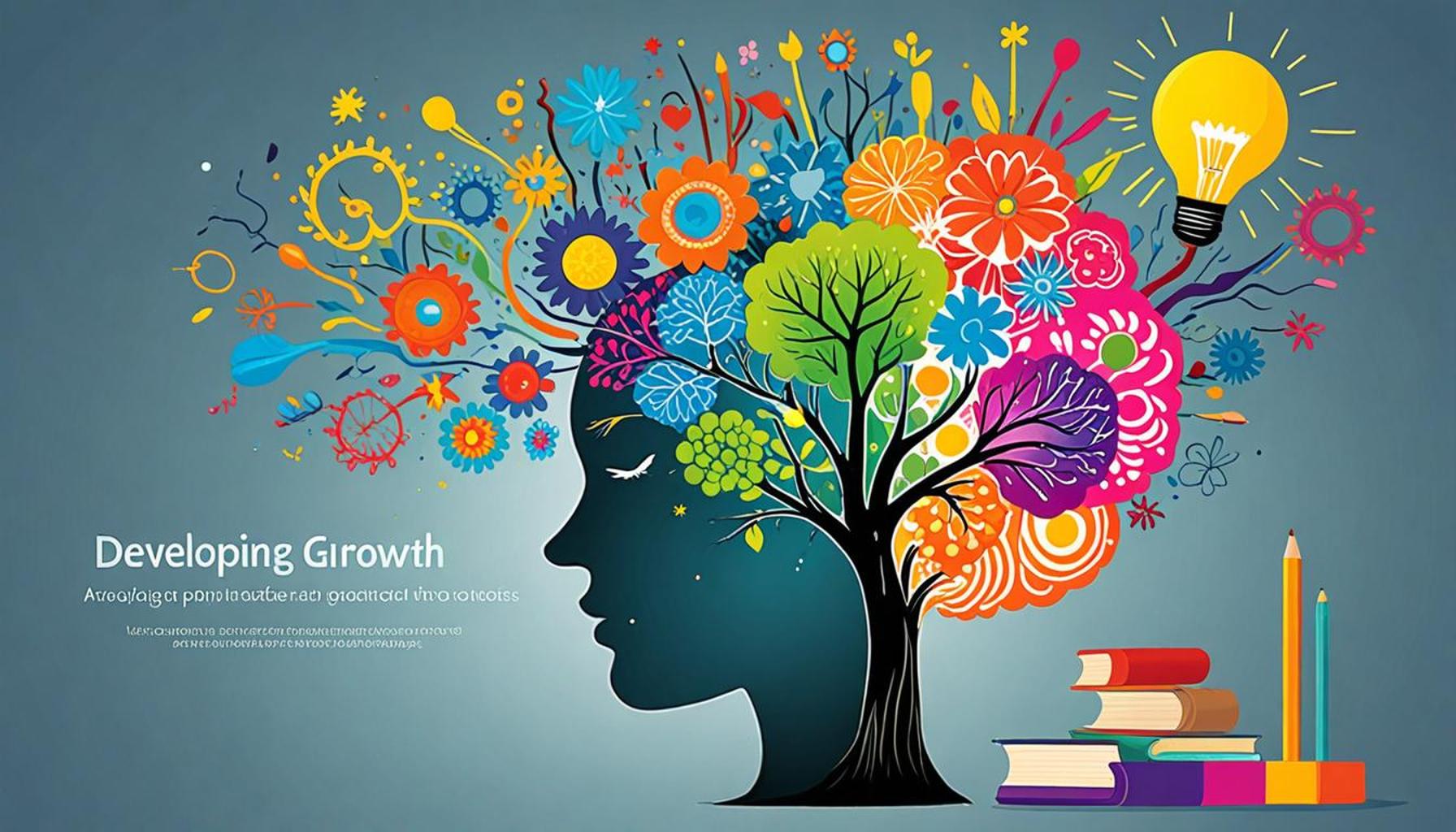The Impact of Reflective Practice on Time Management and Personal Productivity

The Transformative Power of Reflective Practice
In today’s fast-paced world, particularly in a vibrant country like Nigeria, individuals often grapple with a multitude of responsibilities that can feel overwhelming. Navigating through daily tasks, from managing work commitments to personal obligations, requires effective strategies. This is where reflective practice emerges as a transformative tool that not only aids in time management but also enhances overall productivity.
Key Aspects of Reflective Practice
- Self-Awareness: Developing self-awareness is the first step in reflective practice. By taking the time to understand our habits and behaviors, we can identify patterns in our daily routines. For instance, a student who consistently procrastinates may discover that distractions from social media play a significant role in poor time management.
- Critical Thinking: Reflective practice encourages critical thinking. Analyzing past experiences allows individuals to evaluate their effectiveness in various tasks. A business owner, for example, might review the outcomes of last year’s marketing strategies to inform this year’s campaigns, leading to more effective outreach efforts.
- Goal Setting: After reflection, goal setting becomes imperative. Establishing actionable objectives based on insights can guide individuals towards more productive endeavors. A professional might decide to allocate specific hours for focused work after realizing that their productivity peaks during morning hours.
By consistently evaluating experiences and outcomes, individuals can pinpoint what works for them and what does not. This process enables strategic adjustments in how tasks are approached, allowing for increased efficiency and effectiveness.
Benefits of Reflective Practice
- Enhanced Focus: Through reflection, individuals often find that their concentration on tasks improves dramatically. For example, a teacher reflecting on classroom activities may identify periods of distraction among students, prompting a reevaluation of lesson delivery methods.
- Better Decision-Making: Making informed decisions becomes second nature as one learns from past outcomes. A local entrepreneur who reviews customer feedback can adjust product offerings to better align with market demands, ultimately leading to greater customer satisfaction.
- Increased Productivity: Ultimately, reflective practice leads to a significant boost in productivity. By refining processes and eliminating ineffective practices, individuals can achieve more in less time. For instance, a busy mother may discover that meal prepping on weekends allows her to save time during weekdays, fulfilling family needs while maintaining her professional duties.
Incorporating reflective practice into daily routines can have profound effects on one’s ability to manage time effectively. As individuals begin to explore and integrate these reflective methods, they may find that both personal and professional aspirations can be met with greater ease and satisfaction.
Whether through journaling about daily experiences or engaging in quiet contemplation after a busy day, the journey into self-reflection can open doors to new levels of achievement and fulfillment.
CHECK OUT: Click here to explore more

Unlocking Potential Through Reflection
Reflective practice is not merely a buzzword; it serves as a catalyst for profound change in how individuals approach their daily responsibilities. By embracing a routine of reflection, individuals can recognize that enhancing personal productivity and mastering time management is grounded in understanding their own behaviors and tendencies. The journey into reflective practice cultivates a mindset that is both analytical and proactive, paving the way for significant enhancements in efficiency.
Reflection as a Routine: The Journey Begins
For many, the concept of reflective practice may seem daunting, but it can be easily integrated into daily life. Here are some practical tips for incorporating reflection effectively:
- Daily Journaling: Allocating just ten minutes at the end of each day to jot down thoughts and experiences can yield insights that lead to better time management. For instance, a Nigerian entrepreneur could reflect on daily tasks and identify unproductive hours, focusing future efforts on optimizing those periods.
- Weekly Reviews: Setting aside time each week to assess accomplishments and challenges can help in recognizing patterns over a longer timeframe. A project manager may note recurring delays in team projects, prompting them to adjust timelines or improve workflows.
- Accountability Partners: Discussing reflections with a peer or mentor provides external perspectives that can deepen understanding. For example, teachers in Nigeria may find clarity through collaboration by sharing reflections on classroom management and student engagement strategies.
Identifying Challenges Through Reflection
Engaging in reflective practice allows individuals to identify challenges that hinder effective time management. A common issue is the tendency to overcommit, especially in vibrant communities where numerous social engagements occur. By reflecting on interactions and activities, individuals can discern what aligns with their personal and professional goals, leading to more intentional decision-making.
Moreover, understanding personal energy levels is crucial. Some individuals may thrive during morning hours, while others find their stride in the evening. Reflective practice helps in recognizing these preferences, allowing individuals to schedule the most demanding tasks during their peak productivity times. A student in Nigeria, for instance, might adjust their study schedule after discovering that they retain information better in the early hours when their mind is fresh.
As individuals develop a practice of reflection, they not only clarify their priorities but also learn to trust their instincts. Over time, this process cultivates a sense of confidence, particularly in making choices that speak to their unique circumstances and lifestyles.
The path to optimizing time management and enhancing personal productivity through reflective practice is ongoing and dynamic. By adopting a reflection-driven approach, individuals in Nigeria can harness their potential and approach their futures with newfound clarity and purpose.
The Role of Reflective Practice in Enhancing Time Management
Reflective practice is more than just a method of learning; it is a pivotal strategy that fosters an environment where one can evaluate their time management techniques critically. By taking the time to reflect on daily activities, individuals can identify patterns of productivity and discover opportunities for improvement. This reflective process encourages individuals to ask themselves questions such as “What tasks consumed my time today?” and “Which activities were aligned with my goals?” This self-evaluation leads to informed decision-making. When individuals become conscious of how they allocate their time, they are better equipped to adjust their priorities. Research suggests that those who engage in consistent reflective practices often report a greater sense of control over their schedules, which directly correlates to enhanced productivity levels. Moreover, reflection cultivates mindfulness, allowing one to detach from distractions and focus on essential tasks.
The Impact on Personal Productivity
The integration of reflective practices not only enhances time management but also significantly boosts personal productivity. By identifying which strategies yield the best outcomes, individuals can tailor their approaches to work smarter, not harder. For instance, by reflecting on weekly achievements, one can identify their most productive hours and allocate more demanding tasks during these peak times. Furthermore, individuals benefit from setting realistic goals based on reflective insights. The practice encourages periodic reassessments of personal objectives, leading to a dynamic goal-setting approach that adapts to changing circumstances. This adaptability is crucial in today’s fast-paced environment, where the ability to pivot can prove invaluable.As people engage in reflective practices, they begin to notice shifts in their productivity styles. They might experiment with new tools or techniques, such as the Pomodoro Technique or time blocking, to find what works best for them. Each reflection serves as a building block for improvement, resulting in a more effective approach to both time management and overall personal productivity.
Table: Advantages of Reflective Practice in Time Management and Personal Productivity
| Category | Advantages |
|---|---|
| Self-Awareness | Enhances understanding of one’s work habits and inefficiencies. |
| Goal Optimization | Facilitates the alignment of goals with actionable, realistic objectives. |
Incorporating reflective practices into daily routines opens a pathway for individuals to maximize their potential. Whether through journaling, meditation, or structured dialogues, the insights gained from reflection serve as a catalyst for growth in time management and personal productivity. Embracing this transformative concept invites individuals to explore ways to improve, ultimately enhancing their professional and personal lives.
ADDITIONAL INSIGHTS: Expand your understanding here
Transforming Insights into Action
As individuals begin to uncover their strengths and weaknesses through reflective practice, the next step is to translate those insights into actionable strategies that can effectively enhance time management and personal productivity. This process involves setting clear goals, refining approaches to tasks, and prioritizing activities that align with one’s objectives.
Goal Setting and Prioritization
Goal setting is paramount in the realm of time management. Those who engage in reflective practice often find that defining specific, measurable, achievable, relevant, and time-bound (SMART) goals provides a solid framework for focusing their efforts. For example, a small business owner in Nigeria might reflect on their marketing strategies and identify a goal to increase social media engagement by 30% over two months. This clarity enables better allocation of time and resources towards creating captivating content rather than scattering effort across various uncoordinated initiatives.
Moreover, prioritization becomes a natural extension of reflection. By understanding which tasks are essential to achieving their goals, individuals can align their daily schedules accordingly. Putting first things first is not just a mantra; it is a guiding principle for effective time management. Reflective practice empowers individuals to consistently evaluate tasks against their priorities, allowing them to avoid the common pitfall of being busy but not productive. A teacher might reflect on their lesson plans and prioritize them based on students’ learning outcomes, thus ensuring that time is spent on the most impactful teaching methods.
Adapting Strategies for Increased Efficiency
Another layer of transformative learning via reflective practice is adapting strategies to improve efficiency. Different individuals require different approaches to accomplish similar tasks. For instance, an IT consultant in Nigeria may discover through reflection that they excel when they batch similar tasks together. By setting aside dedicated blocks of uninterrupted time for programming, followed by focused sessions for client meetings, they can capitalize on sustained attention, thus optimizing productivity.
Technological tools can also play a pivotal role in enhancing efficiency. Reflective practice can lead individuals to experiment with various project management software or time-tracking apps, identifying which applications best facilitate their workflow. A graphic designer may find an app that helps streamline their design process, allowing them to devote more time to creativity rather than administrative tasks. Understanding how to leverage technology can drastically alter how effectively one manages time.
Building Resilience Through Reflection
The journey of reflective practice inevitably includes challenges, but it also fosters resilience. Regular reflection enables individuals to analyze setbacks calmly and objectively, identifying what may have gone awry without losing sight of their overall goals. For example, if a startup owner encounters delays in product launches, reflective practice allows them to dissect the causes—be it supply chain issues or ineffective delegation—and formulate preemptive strategies for future projects.
By centering reflection in their daily routines, professionals in Nigeria can become more adept at managing stress and preventing burnout. Rather than viewing challenges as failures, individuals can learn to see them as opportunities for learning and growth. This shift in perspective is invaluable for sustaining long-term productivity and maintaining a positive outlook in the fast-evolving work environments that dominate today’s world.
As individuals progress on their journey of self-awareness and growth through reflective practice, they evolve into empowered decision-makers equipped to navigate time management and productivity challenges with confidence and poise.
CHECK OUT: Click here to explore more
Conclusion: The Synergy of Reflection and Productivity
In a rapidly evolving professional landscape, particularly in Nigeria’s diverse work environments, the practice of reflection has emerged as a crucial catalyst for enhancing time management and personal productivity. As this article highlighted, the transformative journey through reflective practice empowers individuals to identify their unique strengths and weaknesses, effortlessly converting these insights into actionable strategies that foster more effective time allocation and task prioritization.
By embracing systematic goal setting, such as the SMART framework, professionals can streamline their efforts toward impactful outcomes, ensuring that every minute spent aligns with their key objectives. The ability to adapt strategies based on reflective insights not only improves efficiency but also emphasizes the importance of resilience in overcoming challenges. In an environment where setbacks are common, reflective practice encourages individuals to view obstacles as pivotal learning experiences, rather than insurmountable failures.
Moreover, in an age characterized by technology integration, reflective practice opens doors to innovative productivity tools, enabling practitioners to tailor their workflows remarkably. Such adaptations provide an edge in optimizing time management, drastically reshaping work efficiency across sectors. Ultimately, the profound relationship between reflection, time management, and personal productivity reveals an uncharted potential for individuals. Engaging in this vital practice can unleash a sense of empowerment, equipping professionals in Nigeria—and beyond—with the confidence to navigate their responsibilities with clarity and effectiveness.
As we move forward, embracing the insights gleaned through reflective practice may well become a cornerstone of successful time management strategies, allowing individuals to thrive in both their personal and professional spheres.


